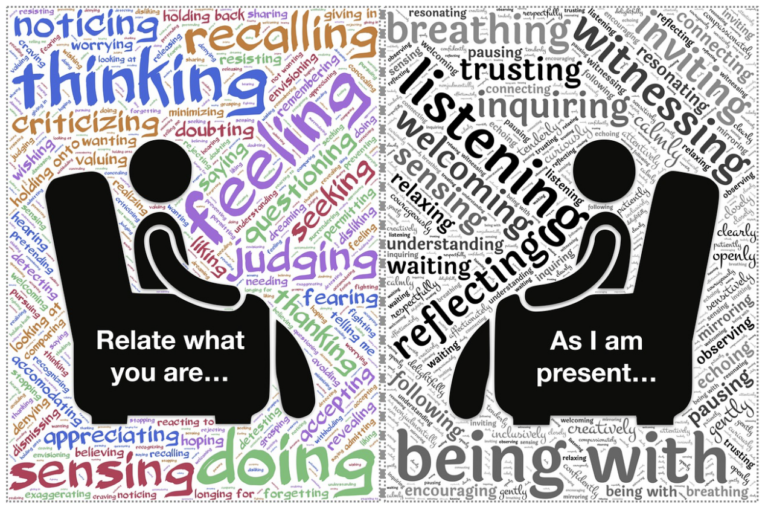
The Art of Cultivating Healthy Relationships: The Power of Effective Communication and Respectful Boundaries
In life, we engage in various kinds of relationships, ranging from friendships and romantic partnerships to professional collaborations. These relationships significantly shape our lives, contributing to our sense of identity, emotional well-being, and personal growth. Therefore, it’s essential to establish effective communication and respectful boundaries in our relationships.
What Are Boundaries in Relationships?
Boundaries in relationships are like invisible fences that safeguard our individuality, personal space, and emotional well-being. They are guidelines we set to delineate acceptable behaviors, expectations, and levels of intimacy in our interactions with others. Boundaries function as signals that communicate our needs and desires to others.
These boundaries are not static; they transform based on our evolving needs, comfort levels, and the nature of the relationship. They are present in all types of relationships, from friendships and familial bonds to romantic relationships and professional collaborations.
In essence, boundaries are the pillars that uphold the integrity of our identities in the face of external influences. By setting clear, respectful boundaries, we can foster healthier relationships while preserving our sense of self.
The Significance of Boundaries in Relationships
Boundaries serve as the foundation for healthy, respectful, and fulfilling relationships. When boundaries are disregarded or violated, relationships can become imbalanced, leading to feelings of discomfort, exploitation, or loss of identity.
Healthy boundaries ensure that every individual’s needs and expectations are acknowledged and respected. They prevent us from compromising our values or feeling pressured to conform to others’ desires at the expense of our well-being.
Conversely, the absence of healthy boundaries can lead to toxic dynamics such as codependency, where one person’s needs and feelings overshadow the other’s. This imbalance can cause emotional distress and contribute to unhealthy patterns of behavior.
Examples of Healthy Boundaries
Healthy boundaries manifest in myriad ways across different relationships. They are evident when individuals:
- Respect each other’s personal space and privacy,
- Communicate their feelings and needs openly and honestly,
- Show appreciation and gratitude for each other’s efforts,
- Respect each other’s differing viewpoints and emotions,
- Take accountability for their actions,
- Avoid infringing on each other’s autonomy.
Healthy boundaries are not merely about saying “no”; they also involve saying “yes” to actions and behaviors that foster mutual respect, understanding, and growth in relationships.
Establishing Boundaries in Romantic Relationships
Romantic relationships often require specific attention to boundary-setting due to the deep emotional investment and close proximity involved. It’s crucial to define boundaries for yourself, your partner, and the relationship as a whole. Each party in the relationship should feel nourished, respected, and cherished.
The process of boundary setting in romantic relationships encompasses a range of considerations:
- Discussing how much time to spend together and how much to spend apart,
- Conversing about comfort levels concerning physical intimacy and public displays of affection,
- Determining mutual expectations about privacy, such as access to personal devices,
- Establishing clear guidelines around financial matters,
- Engaging in open dialogues about sexual activity and relationship agreements.
Remember, boundaries in a relationship aren’t meant to restrict or control; they exist to ensure mutual respect and understanding, fostering a healthier, more fulfilling partnership.
Setting Boundaries in the Workplace
Boundaries are equally crucial in professional relationships to maintain work-life balance, manage stress, and prevent burnout. Key strategies for setting workplace boundaries include:
- Clearly defining work hours and communicating your availability to colleagues and superiors,
- Taking regular breaks to rest and restore,
- Understanding your workload capacity to avoid overcommitting,
- Prioritizing tasks and delegating when necessary.
By establishing and communicating these boundaries, you can create a healthier work environment that respects individual needs and promotes productivity.
Cultivating Boundaries with Parents and Friends
The relationships we share with our parents and friends significantly shape our lives. Therefore, it’s essential to establish clear boundaries in these relationships as well.
For instance, children should feel empowered to express their discomfort or dissent to their parents in a respectful manner. Simultaneously, parents should respect their children’s evolving needs for privacy and independence as they grow older.
Similarly, friendships also require boundaries to ensure mutual respect, understanding, and personal growth. Whether it’s setting limits on how much personal information to share, deciding how often to meet, or discussing acceptable behaviors, setting boundaries can help cultivate healthier and more rewarding friendships.
Recognising and Respecting Others’ Boundaries
Setting boundaries is only one side of the coin; it’s equally important to recognise and respect the boundaries set by others. This can be achieved by being mindful of their verbal and non-verbal cues, asking for their consent before crossing their boundaries, and respecting their decisions without judgment or resentment.
By understanding and respecting others’ boundaries, we can foster healthier, more respectful, and fulfilling relationships.
Seeking Professional Support for Boundary Setting
The process of setting and maintaining boundaries can be challenging. If you’re struggling with this aspect, it can be beneficial to seek professional help such as therapists or coaches. These professionals can provide useful strategies, tools, and insights to help you establish and uphold your boundaries effectively.
Boundaries are integral to fostering healthier, more respectful, and fulfilling relationships. By communicating our needs and desires effectively and respecting others’ boundaries, we can preserve our individuality while engaging in meaningful relationships. Remember, it’s not just about saying “no”, but also about saying “yes” to actions that foster mutual respect and growth in relationships. Setting boundaries is an act of self-care, signifying respect for our own and others’ emotional well-being.
Change Begins With A Call. Book now.
We make the therapy process a simple, welcoming experience.
After your first intake call, we’ll pair you with the perfect psychotherapist for your needs and continue to support you and your mental health every step of the way. Joy and abundance awaits.
Free 10-minute Consultation
We offer a free consultation prior to making an in-person appointment. Schedule online or call us today to get started.

